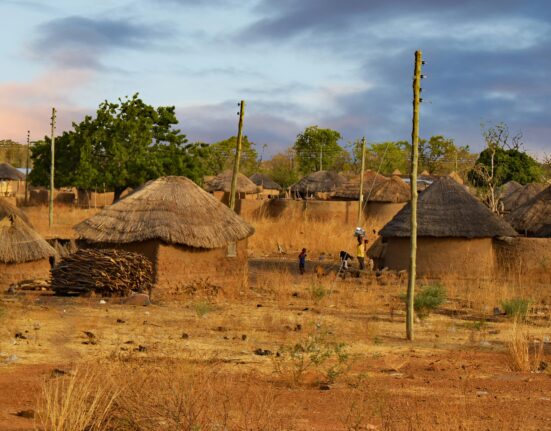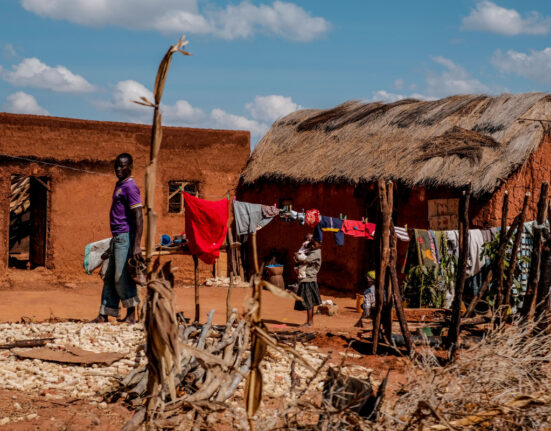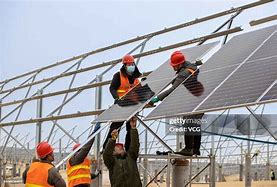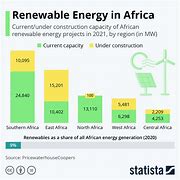In the vast continent of Africa, where natural resources abound, a significant portion of the population still grapples with inadequate access to affordable and reliable electricity. Despite investments reaching about $110 billion in 2024, the International Energy Agency’s data reveals that this amount falls short of what is necessary to ensure universal energy access by 2030. This shortfall paints a stark picture of the existing gap in electricity provision across African nations.
As countries open up their energy markets to private investments, there is a growing optimism that this shift could pave the way for enhanced collaboration between governments and private entities. The move towards decentralised energy solutions has begun to ease pressure on national grids, offering consumers more choice and flexibility. However, challenges loom large as outdated grid infrastructure poses a hindrance to further expansion in renewable energy projects.
Suleiman Babamanu, Programme Director at RMI Nigeria, delves into the critical question: Will liberalising energy markets in African countries lead to genuine progress in expanding energy access? Reflecting on decades of reliance on monopolistic state-controlled utility systems that have left millions without electricity or subjected them to unreliable services, Babamanu highlights the pressing need for transformative solutions.
“Energy is indispensable for social and economic advancement,”
he emphasizes.
“Yet, Africa’s current energy systems are costly, polluting, inequitably distributed, and insufficient.”
The urgency to address these challenges stems from frequent power disruptions impacting businesses’ productivity and impeding communities’ growth potential. Traditional centralized grids are struggling to keep pace with escalating demands amidst an expanding population hungry for more power.
To meet Africa’s burgeoning energy needs effectively, substantial capital investment estimated at $5.9 trillion by 2065 becomes imperative. Sub-Saharan Africa alone requires $45 billion annually dedicated to bolstering transmission networks and integrating renewable sources like solar and wind efficiently. This transition calls for modernized grids capable of accommodating variable renewable energies with enhanced flexibility—a goal that liberalisation endeavors to expedite.
Nigeria stands out as an illustrative case where recent regulatory reforms have devolved power control among its states, fostering efficiency and inviting private sector engagement within the electricity domain. The enactment of the Nigerian Electricity Act in 2023 marked a pivotal moment shifting towards decentralized energy resources such as solar panels and mini-grids—an evolution aimed at tailoring solutions catering specifically to local needs.
Liberalisation holds promise through fostering competition and driving down costs via market deregulation. However, persisting challenges such as regulatory complexities hinder optimal progression in some regions. High taxes coupled with unpredictable tariff structures escalate operational expenses while slow approval processes impede swift project implementation—raising concerns over sustaining investor interest.
Mini-grid initiatives crucial for rural electrification confront additional hurdles including capped pricing constraints despite higher operational costs prevailing in certain areas—a deterrent factor limiting growth potential within this sector. Overcoming financing obstacles remains paramount as commercial lending rates pose prohibitive barriers necessitating alternative funding mechanisms tailored for sustained scalability.
Unlocking low-cost capital flows particularly denominated in local currencies emerges as a critical enabler supporting scalable initiatives essential for broadening electricity access efficiently encompassing diverse consumer segments ranging from rural communities to commercial entities—the success of which hinges upon streamlined regulations reducing associated risks over time.
In conclusion,
A collaborative effort involving streamlined regulations,
increased private sector participation,
and enhanced financial support can propel Africa toward achieving equitable energy access through market liberalization.
By embracing comprehensive reforms fostering innovation,
competition,
and sustainable practices,
the continent can harness its vast untapped economic potential while paving the way for inclusive growth—ultimately illuminating countless lives previously shrouded in darkness due to inadequate power supply avenues.
The path forward necessitates concerted action leveraging available tools effectively
to unlock Africa’s bright future powered by sustainable energy solutions.
Through strategic alignment between stakeholders across sectors,
Africa can navigate its journey towards sustainable development illuminated by accessible
and reliable sources of power—laying a robust foundation conducive
for realizing long-term socio-economic prosperity across its diverse landscapes
and vibrant communities.









Leave feedback about this